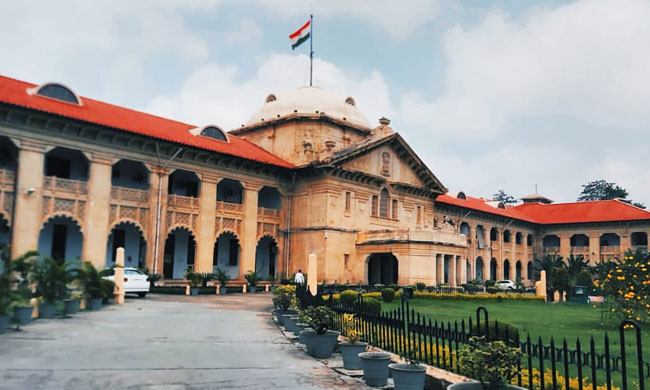Nithyakalyani Narayanan. V
The ‘UP Board of Madarsa Education Act 2004’ has been ruled unconstitutional by the Allahabad High Court (Lucknow Bench), a major verdict that violates the tenet of secularism.
The division Bench comprising Justices Vivek Chaudhary and Subhash Vidyarthi declared the statute to be ultra vires, but they also instructed the Uttar Pradesh government to create a plan that would allow the students currently enrolled in madrasas to transfer to regular schools.
This decision was made months after the state administration established a SIT in October 2023 to look into the funding of madrassas from outside and resolved to survey the state’s Islamic educational institutions.
The High Court’s decision stemmed from a writ petition brought by Anshuman Singh Rathore, in which he had contested the jurisdiction of the UP Madarsa Board and objected to the Union of India and State Government’s management of Madarsas, among other related problems.
The Division Bench voiced its concerns in December 2023 over possible arbitrariness and the necessity for openness in educational institution administration, focusing on the more general question of whether such judgments are consistent with secular governance and equal opportunity principles.
The High Court of Justice (HC) submitted a few crucial points about the Madrasa board’s operations and organizational structure to a Larger Bench in October 2019 (Writ Petition No. 29324 (S/S) of 2019: Mohammad Javed Vs. State of U.P. and others).
The following questions have been referred to a higher bench:
- Given that the Madarsa Board was established to provide education in “Arabic, Urdu, Parsian, Islamic-studies, Tibb Logic, Philosophy and includes such other branches of learning as may be specified by the Board from time to time,” why are members of that particular religion allowed to join the board?
- Can individuals of a specific religion be appointed to or nominated to a board for educational purposes in India under a secular constitution, or should it be people of any religion who are prominent in the fields for which the board is constituted, or such people should be appointed, regardless of religion, who are prominent in the fields for which the board is constituted?
- The Act also stipulates that the Board will report to the State of Uttar Pradesh’s Minority Welfare Ministry. Therefore, it begs the question of whether it is arbitrary to place the Madarsa education system under the Minority Welfare Department while all other educational institutions, including those serving other minority communities like Jains, Sikhs, Christians, etc., are under the purview of the Education Ministry. Additionally, does this arbitrary separation of powers deny children studying in Madarsa access to educational experts and their policies?
As Amicus Curiae, Advocates Madhukar Ojha, Gaurav Mehrotra, and Akber Ahmad made an appearance. For the responders, Mohd. Kumail Haider made an appearance.

